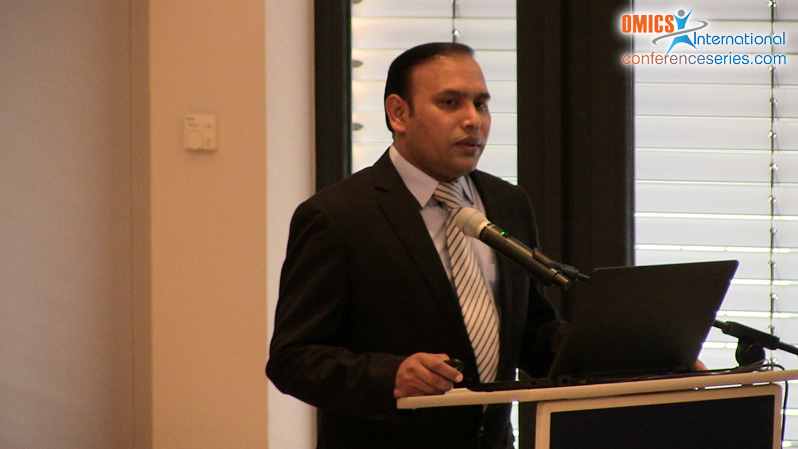
Imran Sajid
University of the Punjab, Pakistan
Title: Antitumor metabolites from Streptomyces sp. KML-2 isolated from Khewra salt mines, Pakistan
Biography
Biography: Imran Sajid
Abstract
A rare bioactive Streptomyces strain designated as Streptomyces sp. KLM-2 was isolated from the Khwera salt mines, (Punjab) Pakistan. On the basis of morphological, microscopic, biochemical and physiological, characterization and by 16S rRNA gene sequencing the isolate was identified as a close member of Streptomyces griseus (100% similarity with S. griseus, Gene Bank Accession No. NR-074787). In preliminary screening, the crude extract obtained from the culture broth of this strain showed high cytotoxic activity against larvae of Artemia salinia and exhibited 84% larval mortality. The same cytotoxic/antitumor behavior was observed when the crude extract was screened against three cell lines by MTT assay. The isolate exhibited significant growth inhibition of the proliferating tumorous cells with the IC50 values of 12.17 µg/ml, 47.88 µg/ml and 56.12 µg/ml against Hela, MD-BK and Vero cell lines, respectively. Based on the potent cytotoxic and antitumor activities the isolate was investigated by cultivation upto 20 liters, and subsequent solvent extraction, through an efficient Diaion HP-20 bead extraction technique and purification of the metabolites by manual column chromatography. The preparative screening yielded two pure compounds including Chromomycin SA and 1-(1H-indol-3-yl)propane- 1,2,3-triol. The results indicate that the isolate Streptomyce sp. KLM2 is a potent producer of the antitumor metabolites and can be exploited for the commercial production of these compounds. Further, the Khewara salt mines are a unique and untapped ecological niche and the screening of diverse microbial strains from this source can yield highly useful antitumor compounds.

